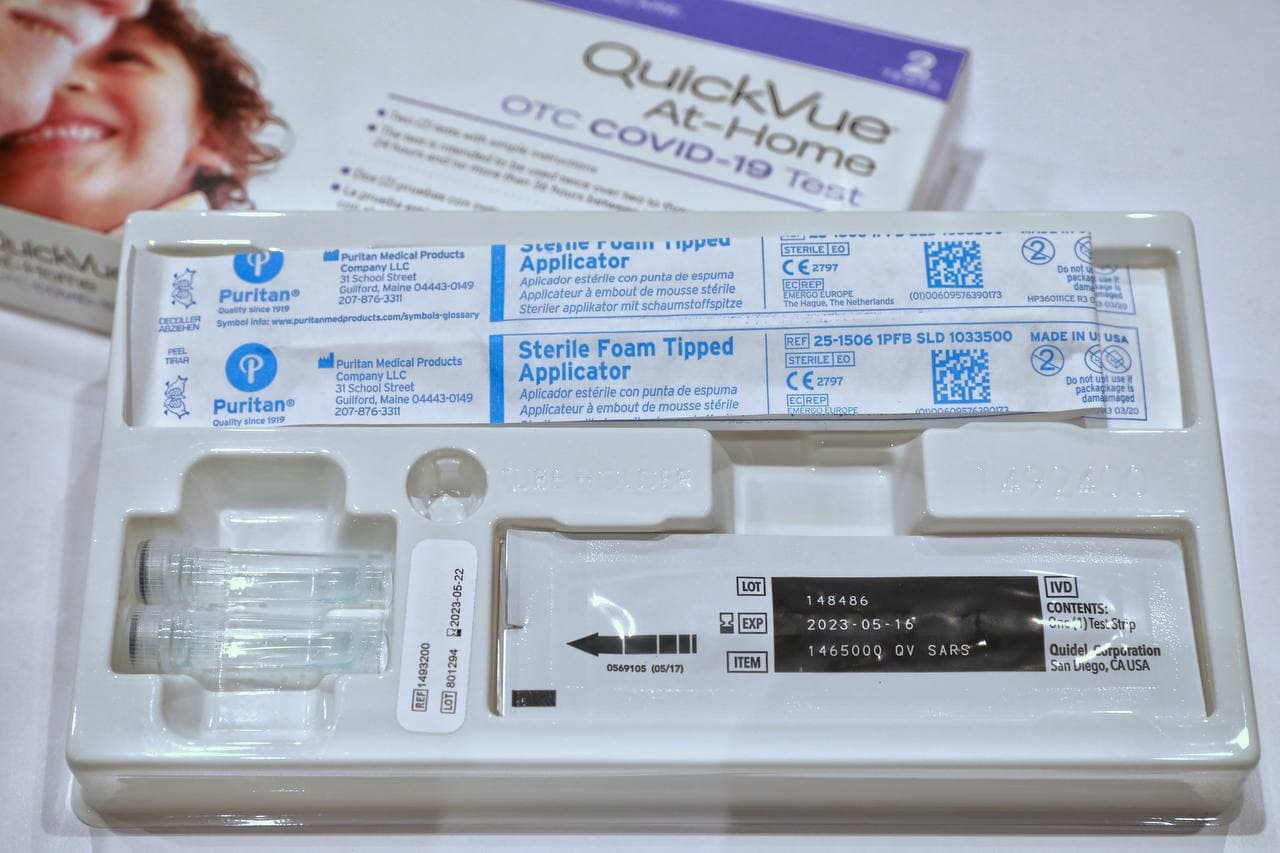DIY Covid-19 test kits now available at major pharmacies in Singapore, prices range from $10 to $13


SINGAPORE - Sales of self-administered Covid-19 test kits started at all major pharmacies in Singapore on Wednesday (June 16).
All 79 Guardian pharmacy stores islandwide have been stocked with two antigen rapid test (ART) kits: the Abbott PanBioTM Covid-19 Antigen Self-test and the QuickVue At-Home OTC Covid-19 Test.
A Guardian spokesman said: "Both brands are approved by the Health Sciences Authority (HSA). The instructions on how to use these two brands differ, hence customers are advised to follow the specific instruction leaflet carefully for the brand they purchase."
The same two test kits are also available at Watsons Singapore and Unity stores.

Their retail prices range from $10 to $13 per test kit, as recommended by the Ministry of Health (MOH).
The Abbott PanBio test kit costs $13 at Guardian. The same kit costs $12.80 at Unity and $13.10 at Watsons. It is cheaper to purchase the tests in boxes of 10 or more.
There were few buyers for the test kits when The Straits Times checked Guardian, Watsons and Unity pharmacy outlets in Jurong East, Bukit Panjang, Potong Pasir and Toa Payoh on Wednesday morning (June 16).
Retiree Ms J. Brown, 60, visited a Watsons pharmacy at Bukit Panjang Plaza on Wednesday to purchase Covid-19 test kits for her family as they are returning to Britain in September this year.
"Instead of going all the way (to the test centre), it's easier and more convenient if you have the kits," said Ms Brown, whose husband works in the oil and gas industry and whose daughter works in a school. "We can test ourselves one to two weeks before we leave so that we can avoid problems when we go to the airport. At least you know that you are 90 per cent negative."
Mr Eric Lim, 33, who works as a kitchen staff at a Japanese restaurant, said he plans to buy three kits next month. He has planned a cruise trip to nowhere in that month.
“I plan to use one kit to test myself before I go on my trip and the other two to occasionally check on myself as my grandparents live with me. I don’t want to risk spreading anything to them," said Mr Lim.
[[nid:531225]]
He told ST he will buy more kits if he is able to use them with ease.
Mr Jordan Lim, 30, director of Red Ginger, said that he intends to purchase 150 sets of the test kits for his employees across his four eateries islandwide.
He said it gives them the convenience of administering the test once every two weeks without having to go to a test centre.
But he is concerned about the ongoing cost of testing, saying: “Purchasing the test kits will only add on to our operational cost. With the current pandemic, our revenue has significantly decreased so we're unsure if we can absorb the costs of the testing kits in the long run.”
The self-administered testing kits are meant to make testing fast, easy and accessible as Singapore gradually resumes more activities.
The self-administered tests will allow MOH to detect infected cases more quickly, in particular among asymptomatic individuals and those concerned that they might have been exposed to Covid-19.
Sales across all pharmacies are currently limited to 10 ART kits per person to ensure there are adequate supplies for all.
The Guardian spokesman said its pharmacies have sufficient stock to cater to the expected demand.
[[nid:531224]]
"The limit of 10 kits has been set to ensure sufficient stocks for everyone... Our pharmacists will exercise discretion with regards to the sale of test kits and we will encourage customers to shop safely and purchase only what they need," she said. "We will continue to closely monitor the situation and adapt our measures where needed."
Individuals who have a positive result for their ART self-test should immediately approach a Swab And Send Home public health preparedness clinic for a confirmatory polymerase chain reaction (PCR) test, MOH said.
They are then required to self-isolate until they receive a negative PCR test result.
Meanwhile, those who test negative on their self-test ART should still stay vigilant and adhere to prevailing safe management measures.
Individuals who have acute respiratory infection symptoms have also been urged to visit a doctor for a full diagnosis and polymerase chain reaction (PCR) test instead of relying on an ART self-test kit.
The HSA has also noted that ARTs have a lower sensitivity than PCR tests and a higher chance of false negative results. In general, ARTs can achieve a sensitivity of about 80 per cent for cases with higher viral loads and a specificity range of 97 per cent to 100 per cent, it added.
Sensitivity refers to a test’s ability to identify those infected as positive, while specificity refers to a test’s ability to correctly identify those not infected as negative.
This article was first published in The Straits Times. Permission required for reproduction.